Indigenous Governance Database
self-government
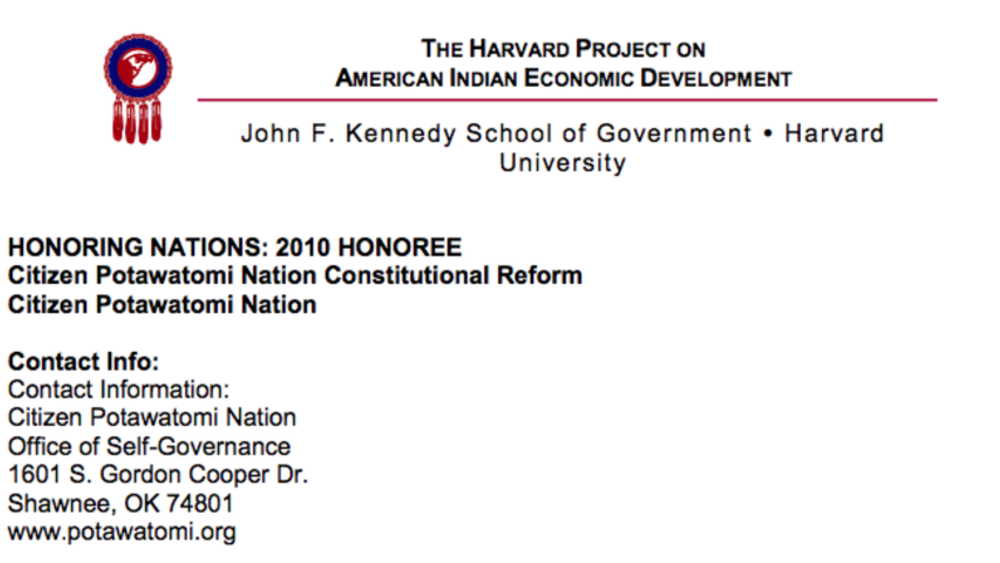
Citizen Potawatomi Nation Constitutional Reform
Tribal governments across the United States work tirelessly to provide their citizens with effective systems of governance. After years of failed assimilation attempts, the federal government imposed blanket political systems upon almost all tribes regardless of those systems’ effectiveness or…
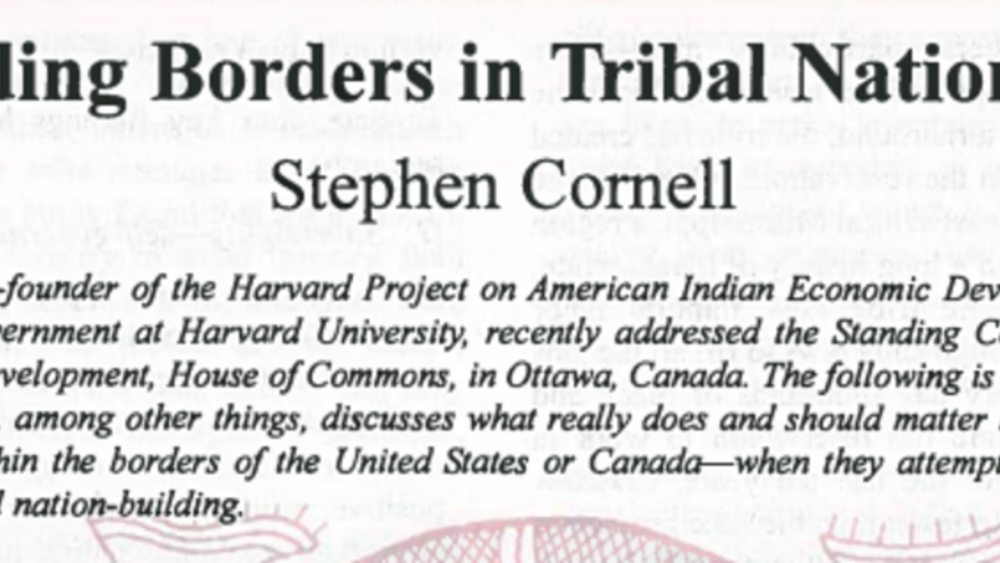
Transcending Borders in Tribal Nation-Building
Dr. Stephen Cornell addressed the Standing Committee on Aboriginal Affairs and Northern Development, House of Commons, in Ottawa, Canada. The following is the excerpted transcript from his address, which, among other things, discusses what really does and should matter to Indigenous peoples--…
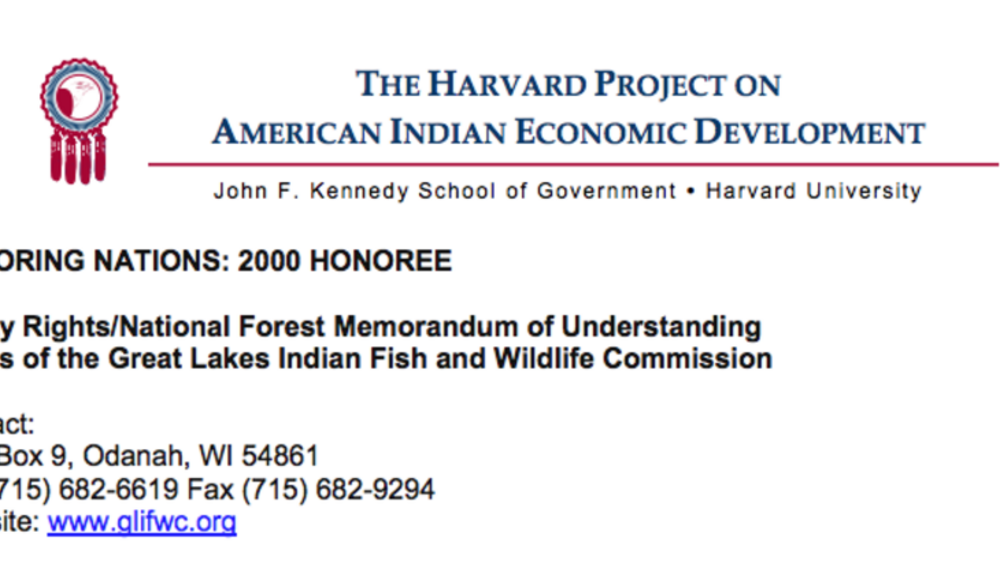
Great Lakes Indian Fish and Wildlife Commission's Treaty Rights/National Forest MOU
The Great Lakes Indian Fish and Wildlife Commission (GLIFWC), a tribally chartered intertribal agency, negotiated a memorandum of understanding (MOU) with the US Forest Service that both recognizes and implements treaty-guaranteed hunting, fishing, and gathering rights under tribal regulations and…
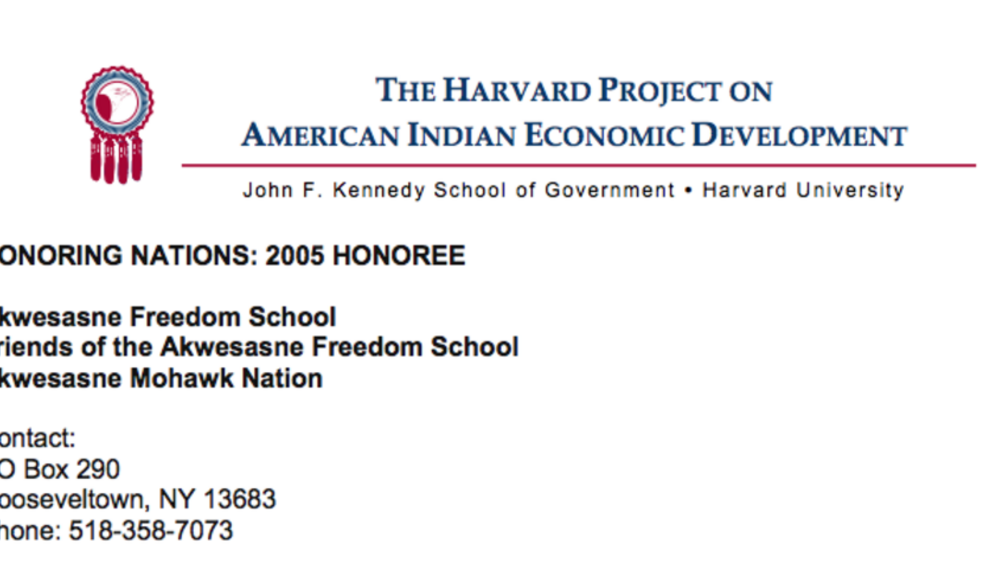
Akwesasne Freedom School
In 1979, the Akwesasne Freedom School took form out of the Mohawk struggle for self-determination and self-government. It is characterized by a deep commitment to the maintenance of Mohawk identity. Students in this pre-kindergarten through 8th-grade language immersion school begin and end each…
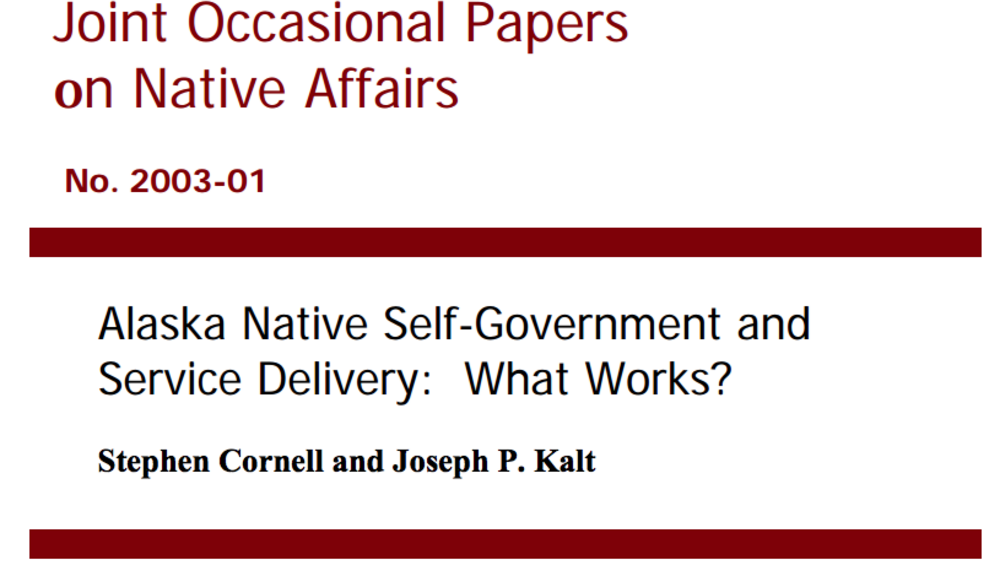
Alaska Native Self-Government and Service Delivery: What Works?
The Native peoples of Alaska have governed themselves for far longer than either the State of Alaska or the United States. Indeed, their rights of self-government are properly defended as basic human rights that are not unilaterally extinguishable by these other governments. Yet, today an…
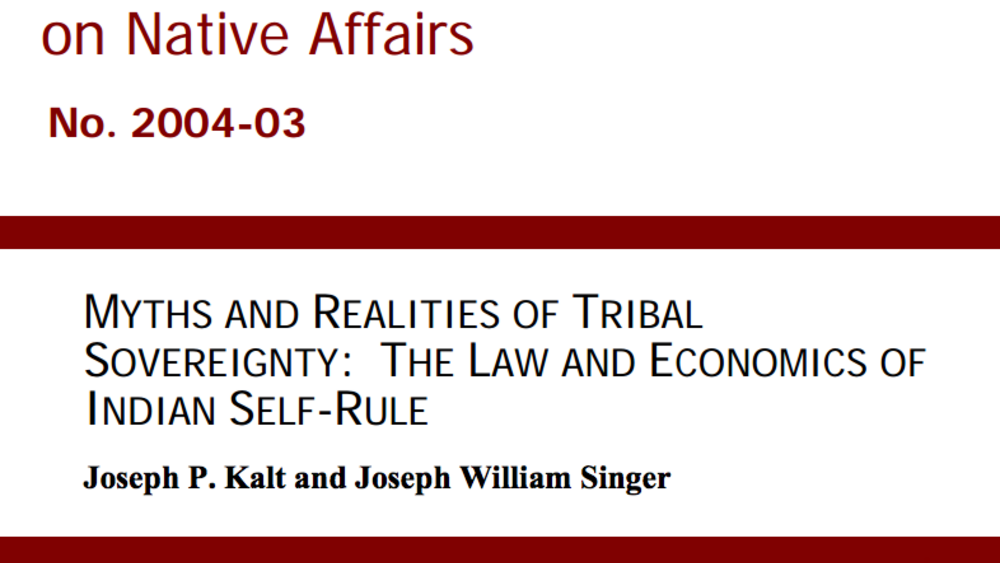
Myths and Realities of Tribal Sovereignty: The Law and Economics of Indian Self-Rule
The last three decades have witnessed a remarkable resurgence of the American Indian nations in the United States. The foundation of this resurgence has been the exercise of self-government (sovereignty) by the more than 560 federally- recognized tribes in the U.S. In this study, we explore legal…
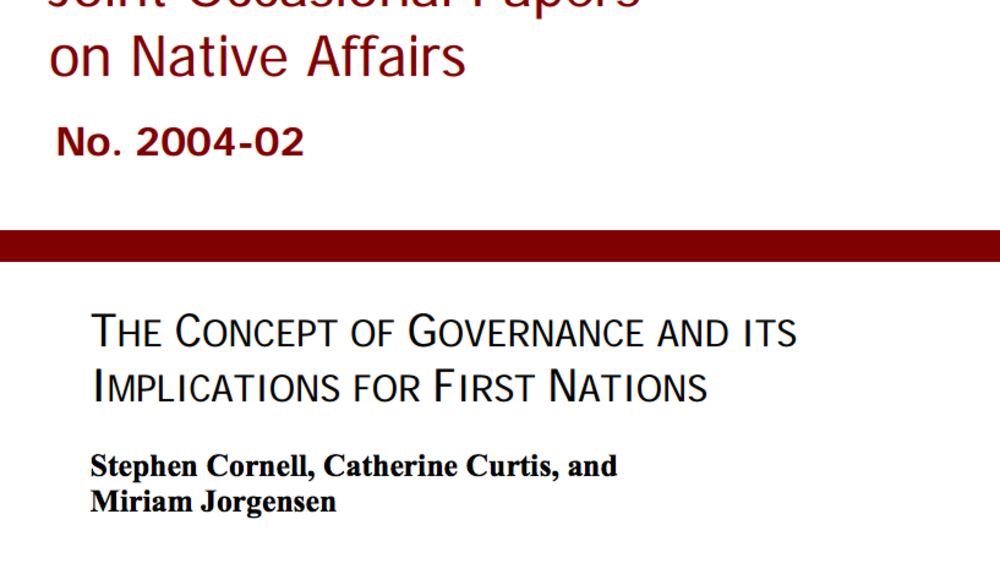
The Concept of Governance and its Implications for First Nations
What is governance? What is government? What does each do? And what distinguishes good governance - or good government - from bad? Why is the quality of governance important to the success of human societies? And what is the significance and meaning of self-governance? And What does effective self-…
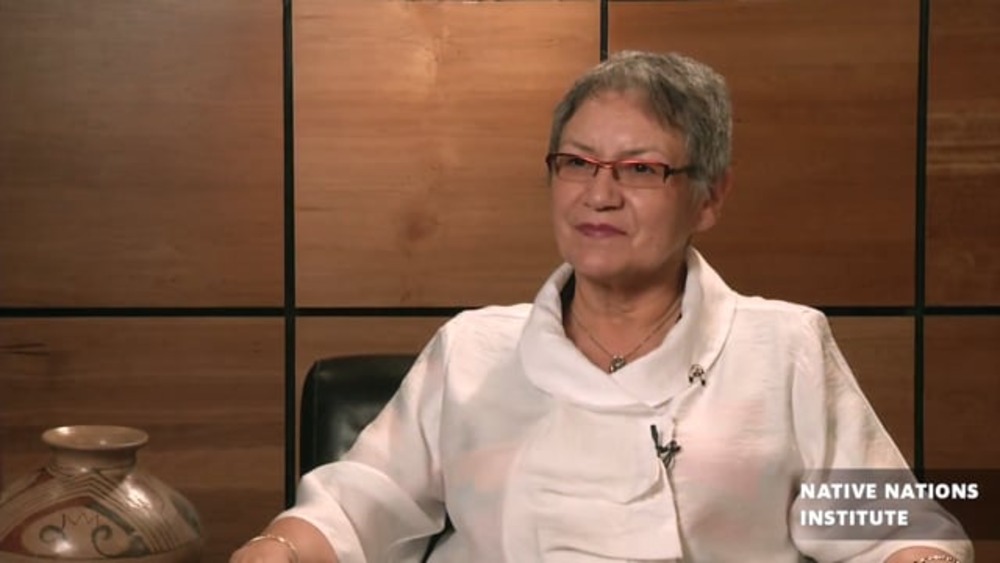
Sophie Pierre: Governance the Ktunaxa Nation Way
Sophie Pierre is a respected native leader that has been at the forefront of building key components and infrastructure for modern self-governance in the Ktunaxa Nation. Her tenure as Chief Commission for the BC Treaty Commission appointed by governments of Canada and British Columbia and the First…
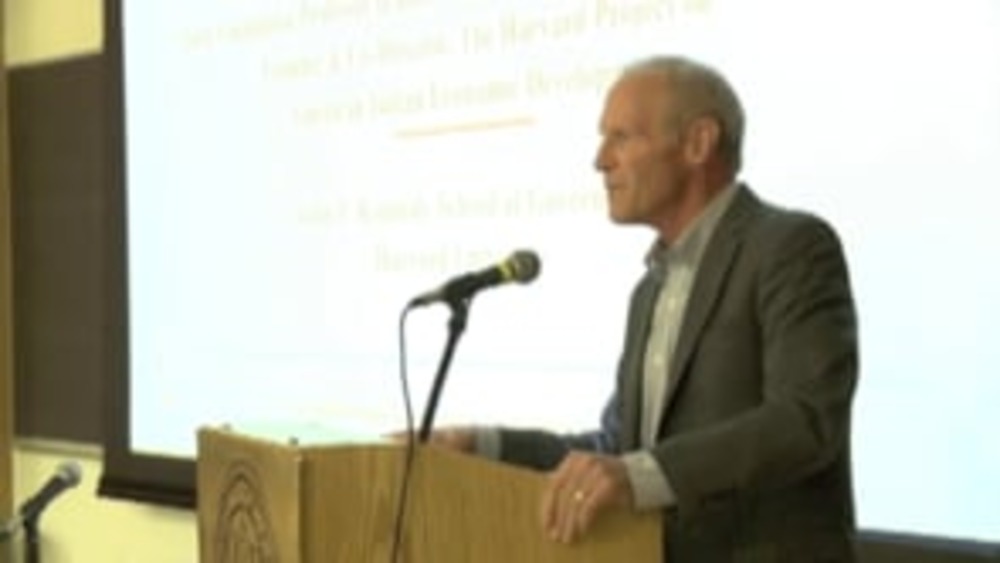
Good Native Governance: Lunchtime Keynote Address
UCLA School of Law "Good Native Governance" conference lunchtime keynote speaker, Joseph P. Kalt discusses research in the areas of good Native governance. This video resource is featured on the Indigenous Governance Database with the permission of the UCLA American Indian Studies…
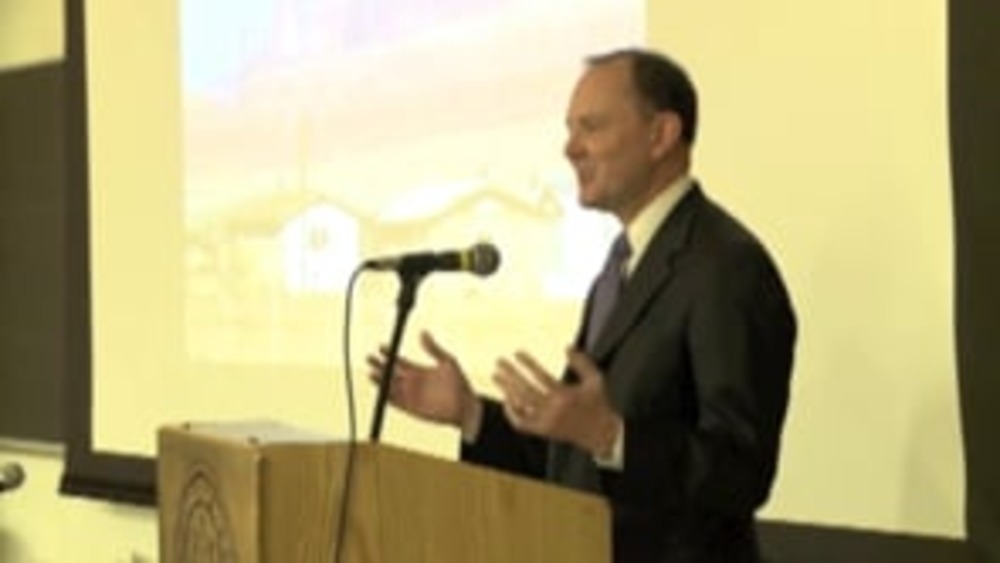
Good Native Governance: Keynote Address
UCLA School of Law "Good Native Governance" conference keynote speaker, Kevin Washburn, Assistant Secretary — Indian Affairs for the U.S. Department of the Interior, examines how Native nations are engaging so well in self-determination through good governance. This video resource is…
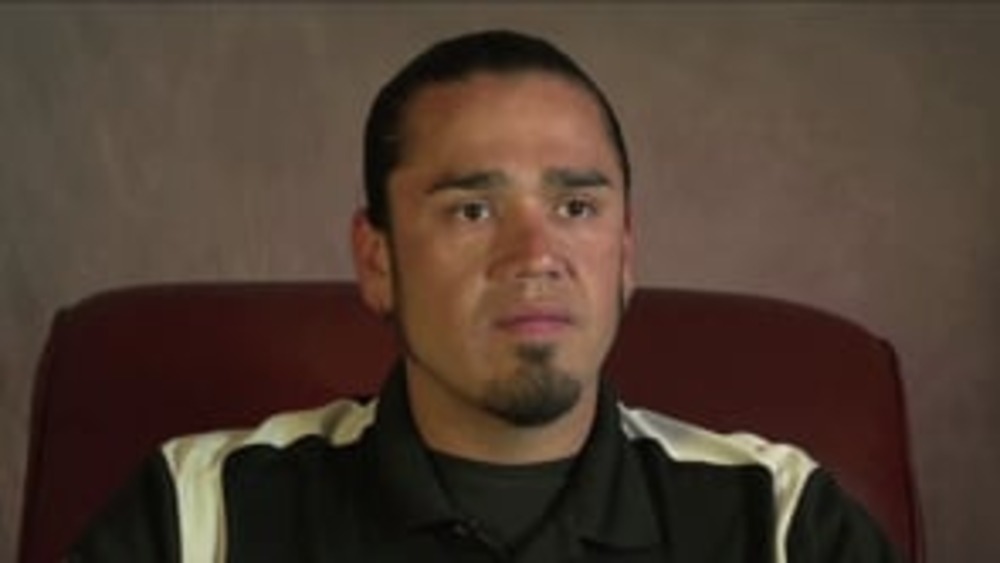
Justin Beaulieu: The Red Lake Nation's Approach to Constitutional Reform
Justin Beaulieu (Red Lake Nation), coordinator of the Red lake Nation Constitution Reform Initiative, provides a detailed overview of how the Red Lake Nation's constitution reform committee has designed and is implementing a methodical, strategic, comprehensive approach to reviewing and reforming…
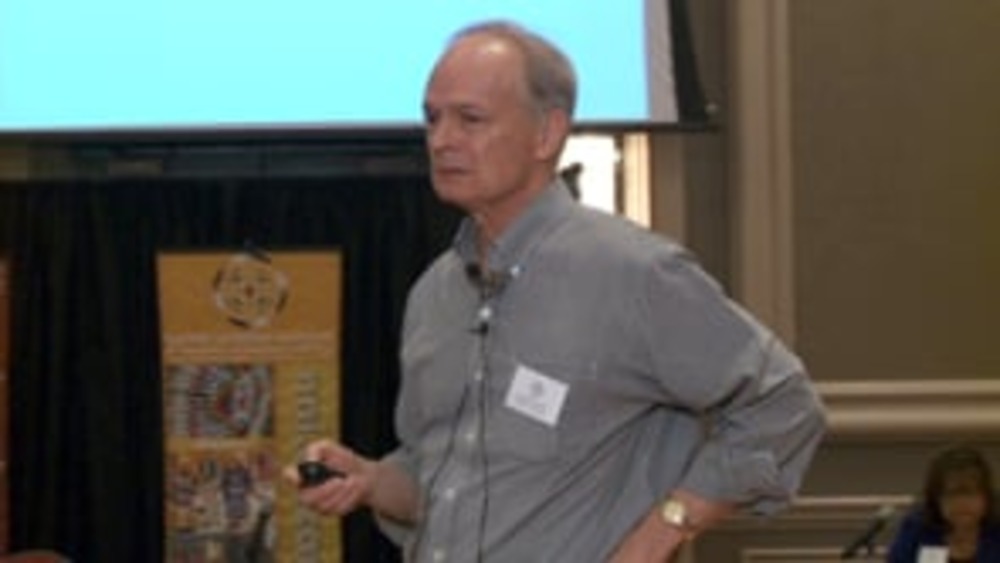
Stephen Cornell: Defining Constitutions (Presentation Highlight)
In this highlight from the presentation "Defining Constitutions and the Movement to Remake Them," Stephen Cornell provides some basic definitions of what a constitution is and the role it fundamentally plays -- or should play in the life of Native nations.
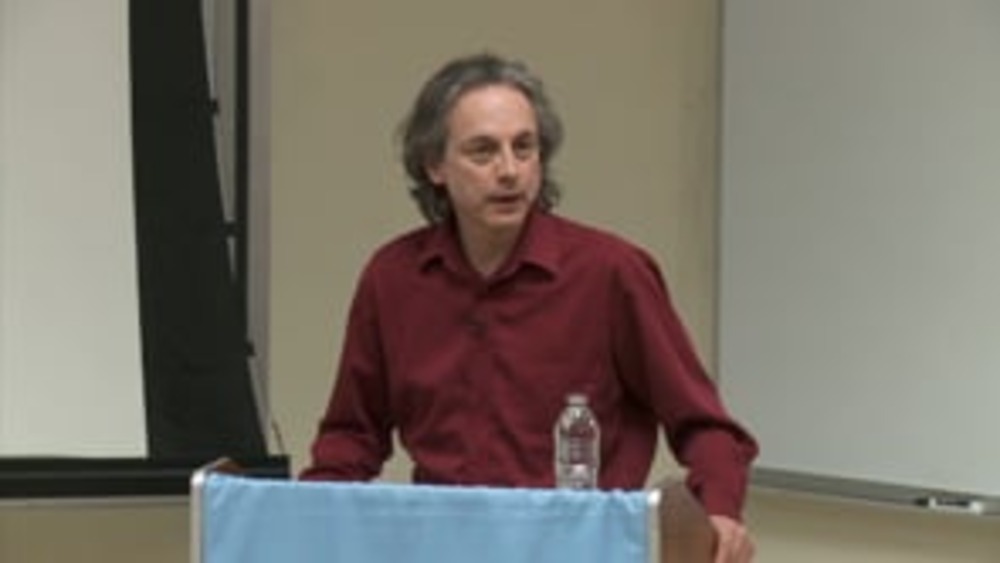
Robert Innes: Elder Brother and the Law of the People: Maintaining Sovereignty Through Identity and Culture
Robert Innes, a citizen of the Cowessess First Nation in Saskatchewan, discusses how traditional Cowessess kinship systems and practices continue to structure and inform the individual and collective identities of Cowessess people today, and how those traditional systems and practices are serving…
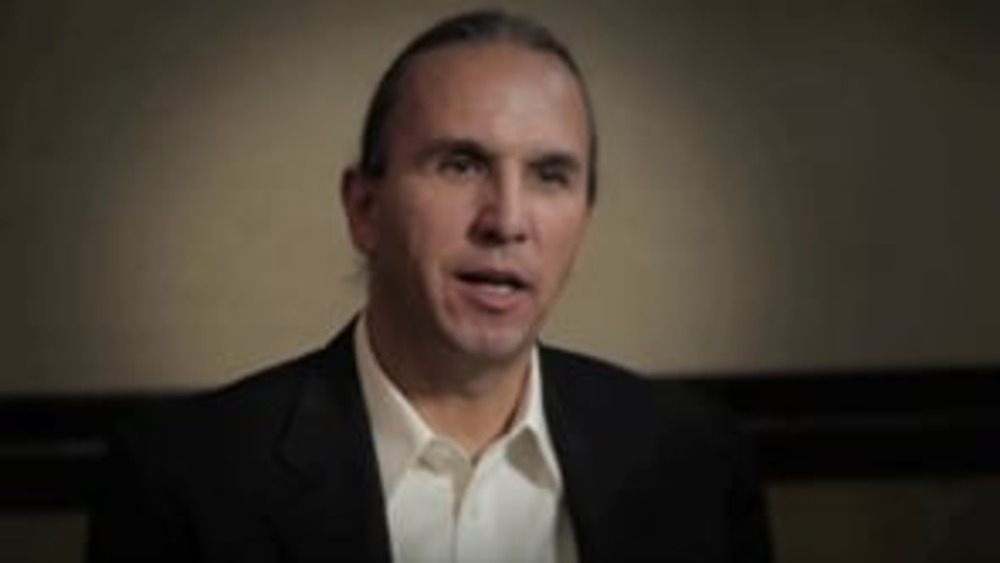
Terry Janis: The White Earth Nation Constitutional Reform Process
In this lively and far-reaching discussion with NNI's Ian Record, Terry Janis (Oglala Lakota), former project manager of the White Earth Nation Constitution Reform Project, provides an overview of the citizen education and engagement campaign that preceded White Earth's historic vote to ratify a…
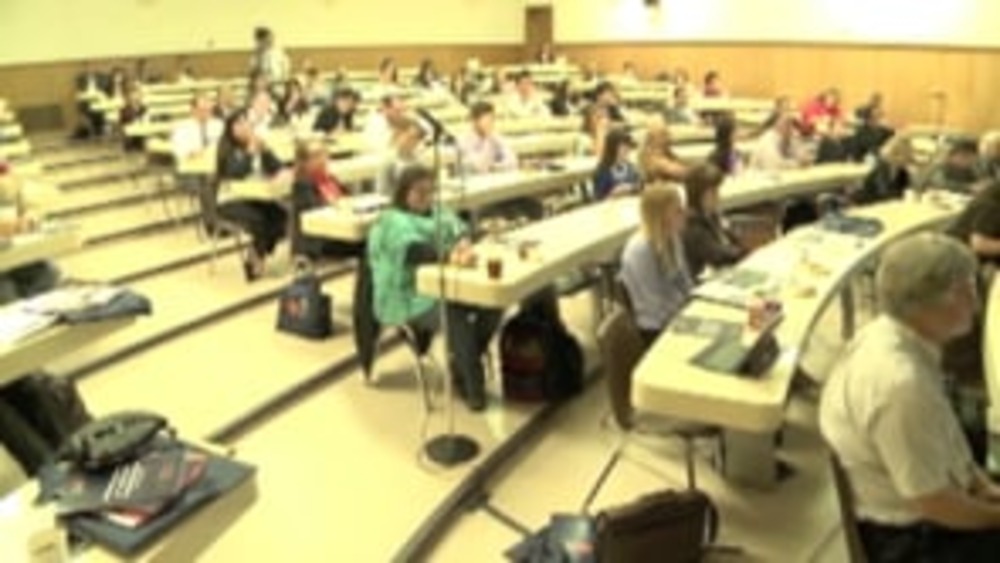
Good Native Governance Plenary 1: Innovations in Law
UCLA School of Law "Good Native Governance" conference presenters, panelists and participants Carole E. Goldberg, Matthew L.M. Fletcher, and Kristen A. Carpenter discuss law and the issues that Native nations deal with. Goldberg explains the recommendations of the Indian Law and Order Commission…
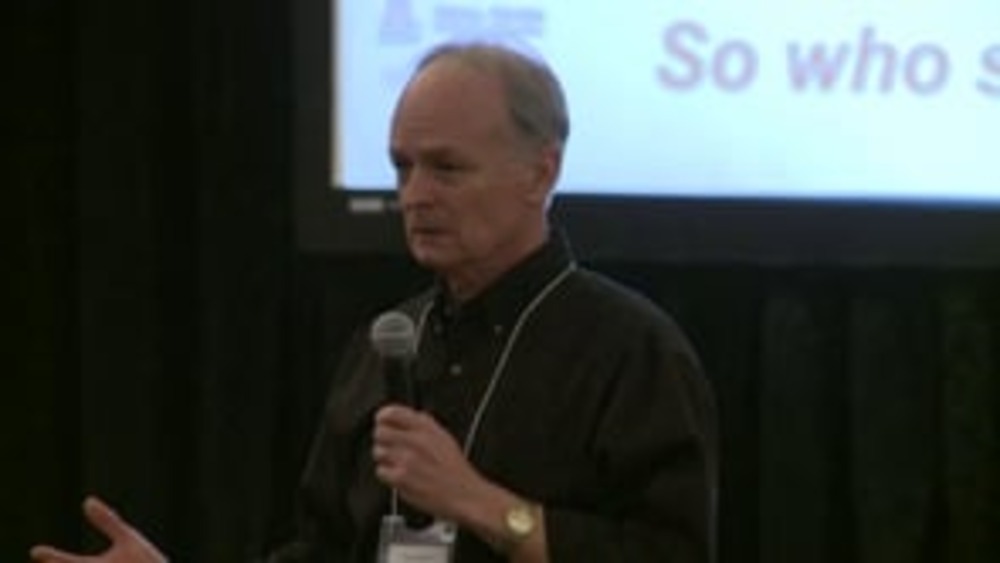
Stephen Cornell: The Task of Reclaiming Self-Governance (Presentation Highlight)
In this highlight from the presentation "Key Things a Constitution Should Address: 'Who Has Responsibility for What?'," NNI's Stephen Cornell provides an overview of the fundamental questions that Native nations must ask themselves as they reclaim control over and then redesign their governance…
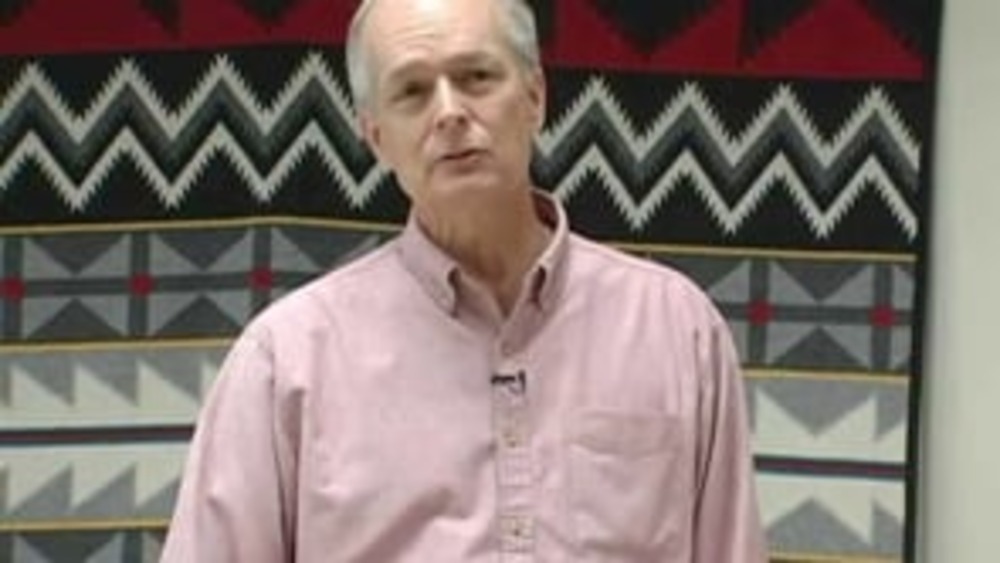
From the Rebuilding Native Nations Course Series: "Self-Determination and Governance Are Related"
Harvard Project on American Indian Economic Development Co-Director Stephen Cornell stresses the importance of Native nations exercising sovereignty effectively over time as an important way to defend their sovereignty.
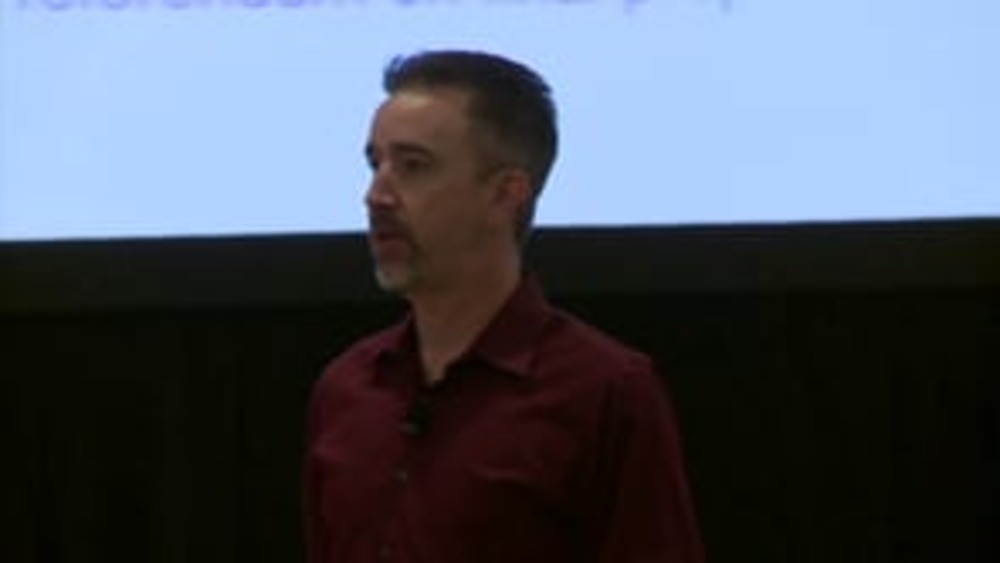
Ian Record: Setting the Focus and Providing the Context: Critical Constitutional Reform Tasks (Presentation Highlight)
In this highlight from the presentation "The Process of Constitutional Reform: The Challenge of Citizen Engagement," NNI's Ian Record lays out two critical overarching tasks that those charged with leading a nation's constitutional reform effort must undertake.
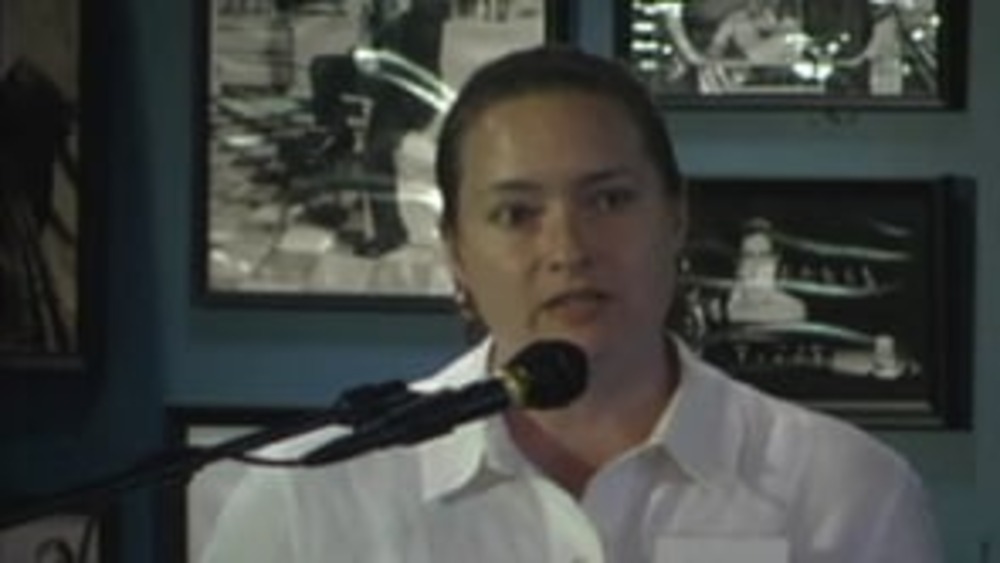
Honoring Nations: Miriam Jorgensen: Lessons to Take Home
NNI Research Director Miriam Jorgensen concludes the 2004 Honoring Nations symposium with her impressions about the lessons learned from the convening, from the great diversity among Native nations to the great strides they are taking when they devise their own solutions to the challenges they…
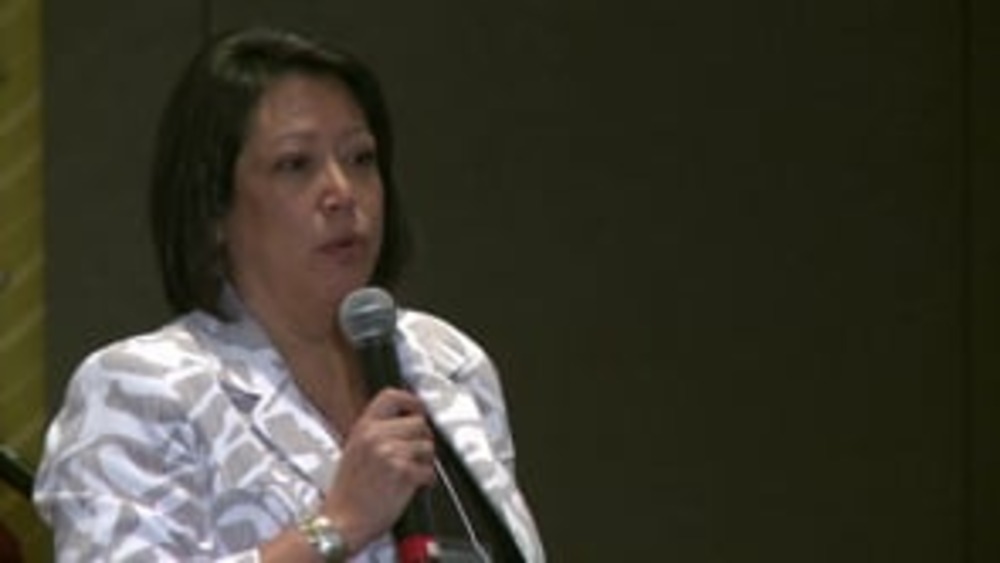
Angela Wesley: A "Made in Huu-ay-aht" Constitution
Angela Wesley, Chair of the Huu-ay-aht Constitution Committee, discusses the process that the Huu-ay-Aht First Nations followed in developing their own constitution and system of government. She describes how Huu-ay-aht's new governance system is fundamentally different from their old Indian Act…
Pagination
- First page
- …
- 1
- 2
- 3
- …
- Last page
